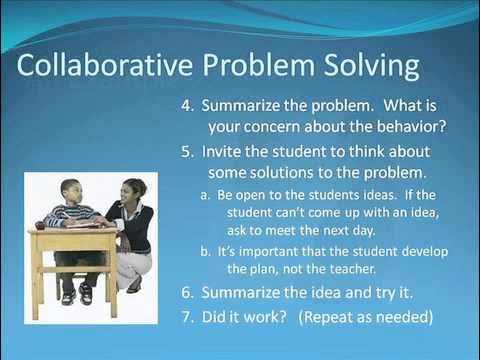RTLB Agents of Change
Summary
TLDRThis module explores the role of RTLB practitioners as agents of change, emphasizing the impact of collaborative practice on schools, learners, and communities. Through video case studies, research literature, and reflective exercises, participants are encouraged to consider sustainable solutions, navigate barriers, and foster inclusive environments. Key themes include leveraging collective expertise, working alongside school leaders, and critically reflecting on one’s own practice to influence meaningful change. Practical examples from 2021 highlight collaborative strategies, leadership approaches, and systemic interventions, offering rich insights for enhancing professional practice and creating lasting positive outcomes in educational settings.
Takeaways
- 😀 RTLB practitioners are encouraged to see themselves as agents of change who can create sustainable impact in schools, communities, and for mokopuna.
- 😀 Effective change goes beyond quick fixes, packaged programs, or external consultants, focusing instead on understanding the ecology of the school environment.
- 😀 Collaboration and collective energy are central to driving meaningful change, requiring high commitment from all stakeholders.
- 😀 Guiding principles of RTLB practice include drawing on professional skills and collaborative expertise to improve outcomes for learners, teachers, and communities.
- 😀 Barriers to collaboration often arise from misunderstandings of the RTLB role and reliance on the medical model of assessing and treating children.
- 😀 Inclusion and inclusive practice require shifts in perception and action, focusing on environmental adaptations rather than only individual interventions.
- 😀 Real-world examples, such as Tara and Jill (2021), Timan Tahi Leadership Team, and Ruth McCullum (2021), demonstrate collaborative change in action and provide rich learning opportunities.
- 😀 Reflection on personal experiences helps RTLBs identify opportunities to facilitate change and document their role in portfolios.
- 😀 Research and literature, including Fullan (2003), Kernney & Carol Lynn (2005), and John Hattie, support the importance of sustainable, collaborative, and school-led change.
- 😀 Practitioners are encouraged to critically consider both facilitating and navigating change, applying key lessons from examples to their own practice.
- 😀 Engaging with videos, articles, and additional resources strengthens understanding of collaborative expertise and strategies for driving systemic change.
Q & A
What is the main purpose of this RTLB module?
-The main purpose is to encourage RTLB practitioners to explore their role as agents of change, focusing on creating sustainable impact in schools, for mokopuna, and within communities through collaboration and reflective practice.
How does Michael Fullan’s work relate to being an agent of change?
-Fullan (2003) highlights that schools often rely on quick fixes, packaged programs, or external consultants. Being an agent of change involves looking deeper into the school’s ecology to create sustainable solutions rather than temporary relief.
What are the guiding principles of RTLB practice discussed in the module?
-Guiding principles include focusing on collective energies, facilitating collaboration, improving outcomes for learners, teachers, schools, and communities, and drawing upon professional expertise to implement sustainable change.
What types of resources are suggested for exploring the role of an agent of change?
-Resources include videos of Tara and Jill (2021), Ruth McCullum (2021), John Hattie’s video on collaborative expertise, articles such as Kearney & Carol-Lynn (2005), and Lifelong Resources containing examples of collaborative practice.
What are some barriers to collaboration mentioned in the module?
-Barriers include how the RTLB role is perceived by senior leaders, SENCOs, and teachers, as well as reliance on the medical model of assessing and diagnosing children rather than addressing environmental and systemic factors.
How does the module differentiate between facilitating change and navigating change?
-Facilitating change involves actively shaping and influencing practice and culture, while navigating change involves responding to changes initiated by others. Both require reflective practice and strategic collaboration.
Why is collaboration considered essential for RTLB practitioners?
-Collaboration leverages collective expertise, strengthens commitment from all stakeholders, and allows for sustainable solutions that improve outcomes for learners, teachers, schools, and communities.
What strategies are suggested to promote inclusion and inclusive practices?
-Strategies include shifting focus from individual diagnosis to environmental factors, facilitating discussions about inclusion, supporting school leaders, and creating ripples of influence that shape perceptions and practice around inclusive education.
How should RTLB practitioners reflect on their practice according to the module?
-Practitioners should critically reflect on their experiences as agents of change, identify opportunities to collaborate, document examples in their portfolio, and consider what strategies have successfully influenced practice and culture.
What examples of collaborative practice are highlighted in the module?
-Examples include RTLB learning support hubs in Northland and the Far North region, Ruth McCullum’s work on supporting children with oversensitized behaviors, and John Hattie’s principles of collaborative expertise.
How can RTLB practitioners apply the module’s content in their daily practice?
-Practitioners can apply content by engaging with the videos and articles, reflecting on their own experiences, collaborating with school leaders and colleagues, identifying barriers and enablers to change, and documenting actions and reflections in their professional portfolio.
What role do school leaders play in facilitating change according to John Hattie?
-School leaders are key to leading change; their engagement and commitment, in collaboration with RTLB practitioners, are crucial for developing a culture of collaborative expertise and improving outcomes across the school community.
Outlines

This section is available to paid users only. Please upgrade to access this part.
Upgrade NowMindmap

This section is available to paid users only. Please upgrade to access this part.
Upgrade NowKeywords

This section is available to paid users only. Please upgrade to access this part.
Upgrade NowHighlights

This section is available to paid users only. Please upgrade to access this part.
Upgrade NowTranscripts

This section is available to paid users only. Please upgrade to access this part.
Upgrade NowBrowse More Related Video

(DIASS) Areas and Career Opportunities for Counselors

Trauma Module 4; Relationships

History of Internet(I)

Environmental Justice: People, Practice and Policy

Social and Emotional Learning Fundamentals: SEL 101 with CASEL

Cara mengsukseskan reformasi birokrasi disetiap level pemerintahan (Pemerintah Daerah)
5.0 / 5 (0 votes)